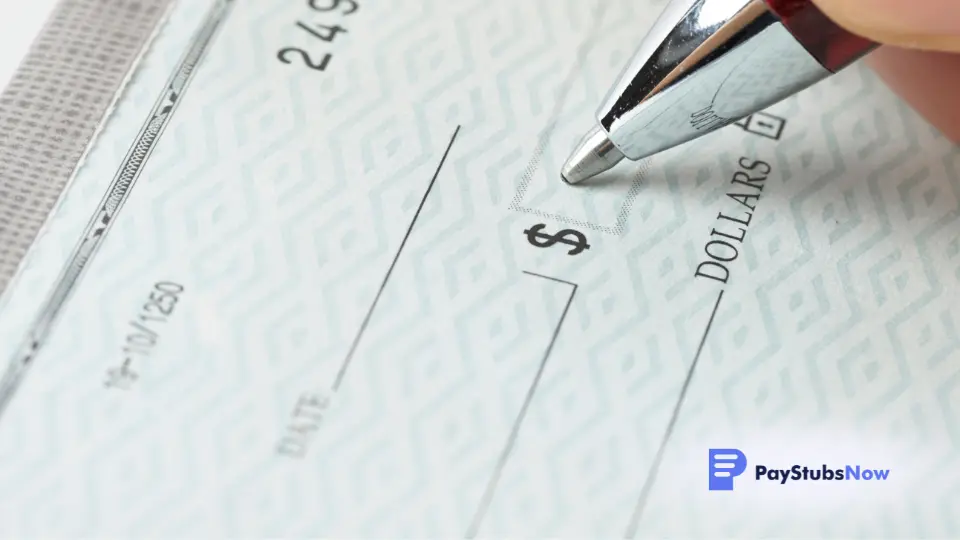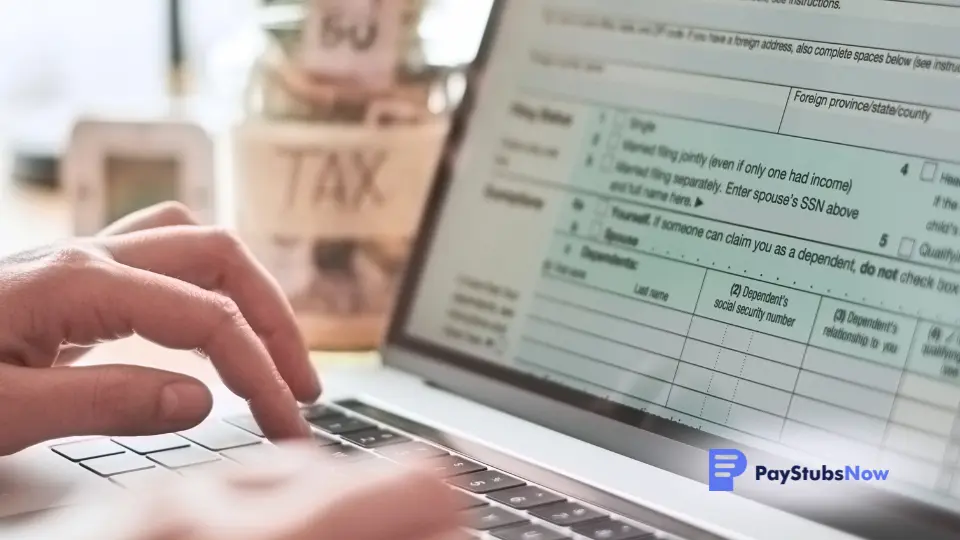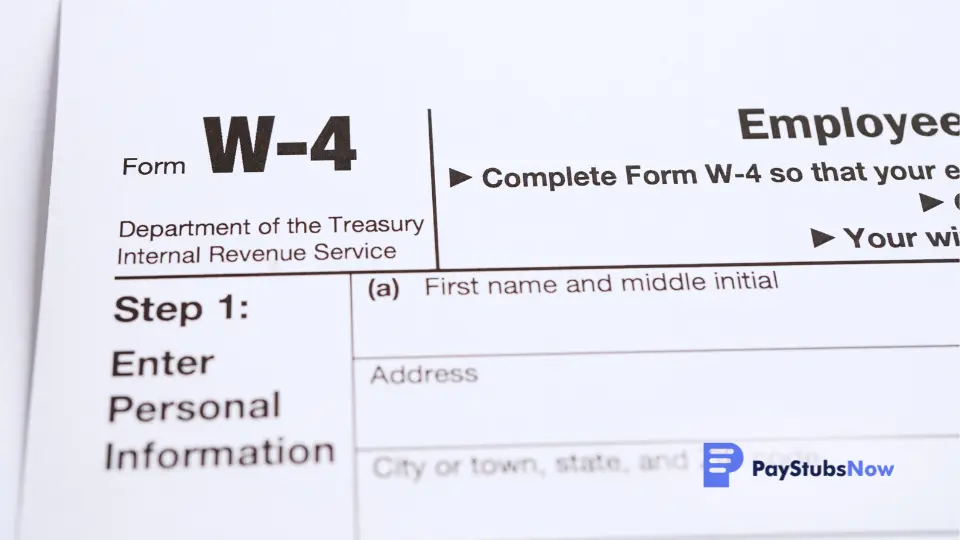


Say you're a freelancer, a small business owner, or a self-employed individual who often gets paid in cash. What do you do come tax time? We know dealing with taxes can be intimidating, so we're here to guide you in the right direction.
This insightful post aims to clarify how you should appropriately report your income and fulfill your tax obligations. So, get ready to dive in and learn easy ways to make tax filing less stressful.

Cash payments, generally speaking, typically involve the exchange of physical currency. However, for the purpose of tax reporting, a broader spectrum is included:
When you receive income in cash, it's crucial to understand that the IRS still expects you to meet your payroll tax obligations. Regardless of how you're paid, whether direct deposit or cash, all income is taxable, and it's your responsibility to report it accurately. This includes social security and Medicare taxes, along with income tax.
Many people mistakenly believe cash income can be deemed 'under the table' and thus tax-free, which is a misconception. Malpractices like these can lead to severe penalties, including financial sanctions and even potential jail time. Straightforward honesty with the government is in every cash recipient's best interest.
Paying taxes on cash income can be made easier by breaking it down into smaller steps. Freelancers and independent contractors need to keep accurate records since they don't receive W-2 or 1099 forms. Employees such as bartenders and servers who receive a lot of tips must remember that all tips are taxable. If your cash income is over $2,700 a year, you need to withhold taxes for FICA.
If you have a business that pays employees in cash, you'll need to get an EIN from the IRS and file a Schedule H with your Form 1040. The gig economy has also increased tax reporting requirements, especially for income earned through cash apps. If you receive a 1099-K form for cash receipts from family or friends, you can correct the error or report it on your tax return.
If you receive substantial cash payments over $10,000, you must file Form 8300 within two weeks of receiving the payment. Additional filings are required as you reach the threshold for accumulated payments.

The following guide takes a deep dive into the specifics of accurately and legally documenting your cash earnings, thus ensuring your compliance with taxation laws and regulations.
If you are working as an employee receiving cash-in-hand payments, you can ensure accurate tax reporting with these easy-to-follow steps:
If you're a freelancer or independent contractor receiving cash payments, follow these steps for accurate tax reporting:
As an individual earning cash tips as part of your wages, accuracy in reporting to the IRS is crucial to avoid tax penalties. Follow these simple steps to handle this process efficiently:

Tax withholdings are portions of your wage that your employer withholds and pays to the government on your behalf. If you are self-employed, you are responsible for making these payments yourself through estimated tax payments.
As an employee receiving cash in hand, you need to ensure that the right amount of tax is being withheld from your wages. This is where Form W-4 comes in handy. You use this form to disclose your filing status and any other personal circumstances that influence how much tax you owe.
If changes need to be made, a new Form W-4 can be submitted to your employer at any time.
When you're self-employed or working as an independent contractor , you're required to make quarterly estimated tax payments. These estimated payments cover income taxes and self-employment taxes, which are your contributions to Social Security and Medicare.
Balancing these payments can be a challenge, but it's essential to avoid penalties for underpayment throughout the year
Generally, Social Security and Medicare taxes account for 15.3% of your income. If you're an employee, your employer typically pays half of this, meaning 7.65% comes out of your paycheck. However, independent contractors should note that they're responsible for the full 15.3% - commonly referred to as the 'self-employment tax.' On the brighter side, half of this amount can be deducted from your income taxes.
But remember, if annual cash payments exceed $2,700, as a household employer, you're required to start withholding Federal Insurance Contribution Act (FICA) taxes for Social Security and Medicare.
Now that we've covered how to report cash income, you must be wondering, "Is there any way I can lessen the tax burden ?" The answer is "Yes"— with tax deductions and credits!
A tax deduction reduces your taxable income, while a tax credit directly reduces the amount of tax you owe. Tracking your expenses meticulously and being well-informed about the deductions and credits can significantly dial down your tax liabilities.
Choosing the standard deduction can be a good option if you don't have many deductions to claim. It can lower your taxable income based on your filing status. However, if you have a lot of job or business expenses, you might benefit more from itemizing your deductions.
Common deductions for people who receive cash payments or work as freelancers include home office expenses, using personal vehicles for work, and buying supplies or equipment. It's important to keep detailed records and save all receipts in case the IRS audits you.
If you're self-employed and deal predominantly in cash transactions, a significant reduction to your tax bill can come from your ability to deduct the employer-equivalent portion of your self-employment tax. This deduction affects only your income tax, not your net self-employment tax.
Tax credits provide a dollar-for-dollar reduction in your tax bill. Key credits to consider are the Earned Income Tax Credit (EITC) for low to moderate-income individuals and families or the Child Tax Credit and Dependent Care Credit if you have children or dependents and incur care costs.
Keeping track of your expenses as they occur saves you from the panic and chaos that tax season often brings. Consider using expense tracking apps or digital accounting software, which are perfect for recording and categorizing expenses in real time and staying organized.

The consequences of failing to report cash income are severe. Contrary to some misconceptions, all income — even if it's paid in cash — is subject to taxation. Failing to report cash income can result in severe consequences, including penalties from the IRS and potential jail time for committing tax fraud.
In addition to financial penalties, not reporting cash income can lead to audits, ongoing tax problems, and damage to your credit score, making it difficult to obtain loans or mortgages in the future.
Your commitment to honest tax reporting establishes a business culture that adheres to legal requirements. But it's not just about keeping law enforcement at bay. Compliance with employment laws elevates your reputation among employees, clients, and peers.
It shows your respect for the rules, contributes to the economic balance, and earns you the reputation of a trusted player in the business environment. Remember, your compliance today protects your peace of mind tomorrow.
If you receive cash in hand, you can organize your finances and taxes more easily with platforms like Paystubsnow. These platforms can help you create formal pay records and tax documents, which makes your financial reporting more accurate. You can manage all your finances, including cash income, side gigs, or freelance work, easily with these platforms, as they reduce errors and increase precision.
These specialized software tools offer many benefits to simplify the tax reporting process. When you enter your income details, the platform automatically generates the necessary documentation. This ensures that you don't miss any important financial data. It not only makes tax reporting easier but also gives you a clear picture of your income and expenses, helping you accurately assess your finances during tax season.
Every dollar you earn, regardless of how you receive it, matters a great deal when it comes to tax reporting. So why not simplify tax calculations with an online platform that takes some of this heavy load off your shoulders? That's what Paystubsnow offers.
Paystubsnow is an online platform that helps ensure your cash earnings are reported correctly and timely. Designed to streamline the process of creating accurate pay records and tax documents, it leaves no room for errors and omissions that could attract legal penalties. It helps you fulfill your tax obligations by ensuring that the documents you create are compliant with employment and labor laws.
Throw away the manual, time-consuming paperwork that's been slowing you down. Start creating your financial documents with Paystubsnow, and stay on top of your tax filing effortlessly!
Disclaimer: Even though tax professionals use and trust Paystubsnow, we are not a CPA (Certified Public Accountant) firm. Our website helps you make paystubs, invoices, W2s, and 1099 forms easily. We don't give out legal or tax advice. It's a smart idea to talk with your own CPA, tax person, or lawyer to make sure you're doing everything right by the law.